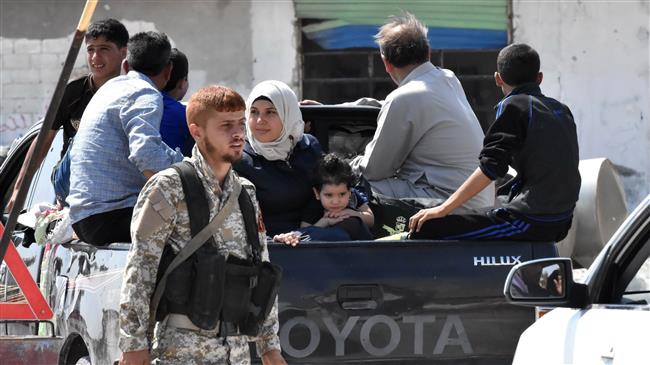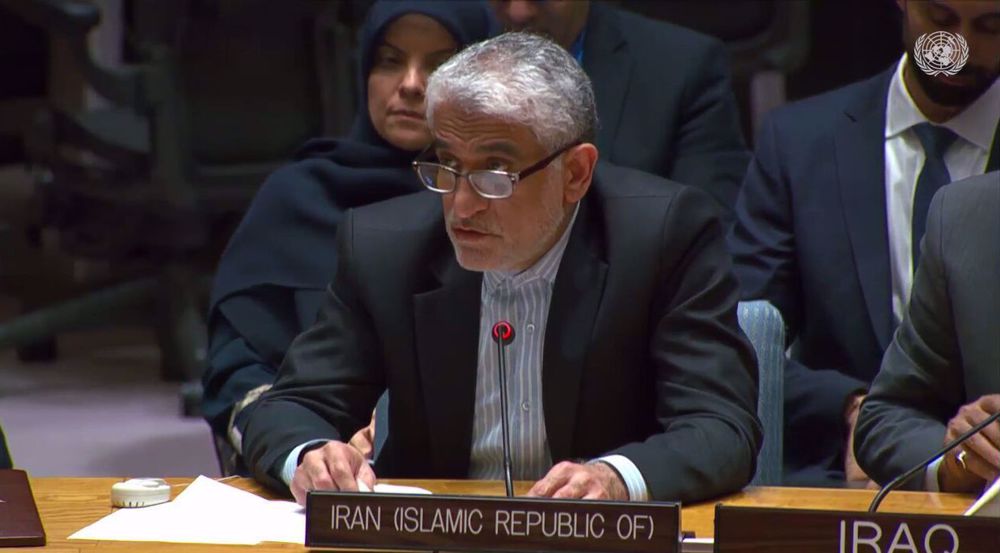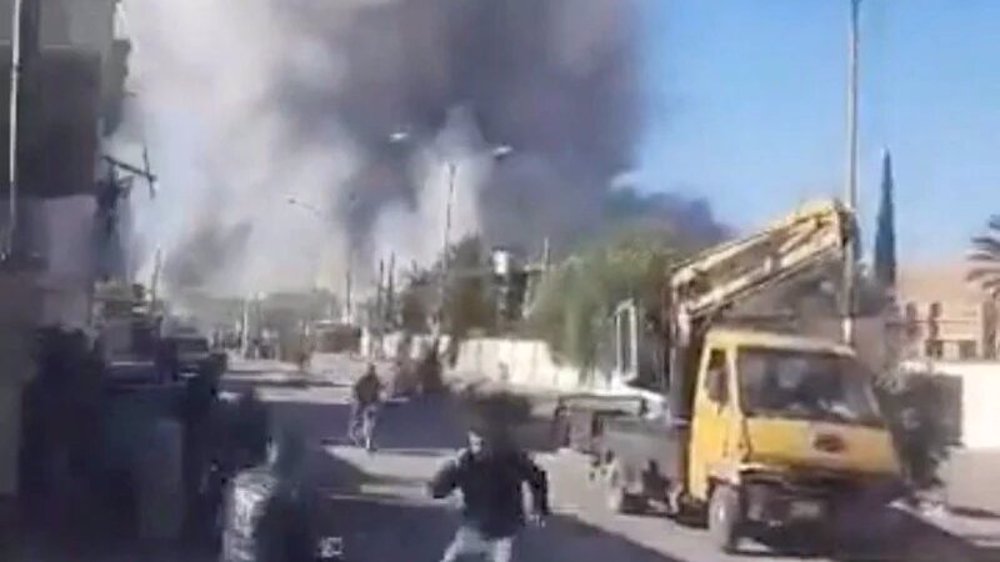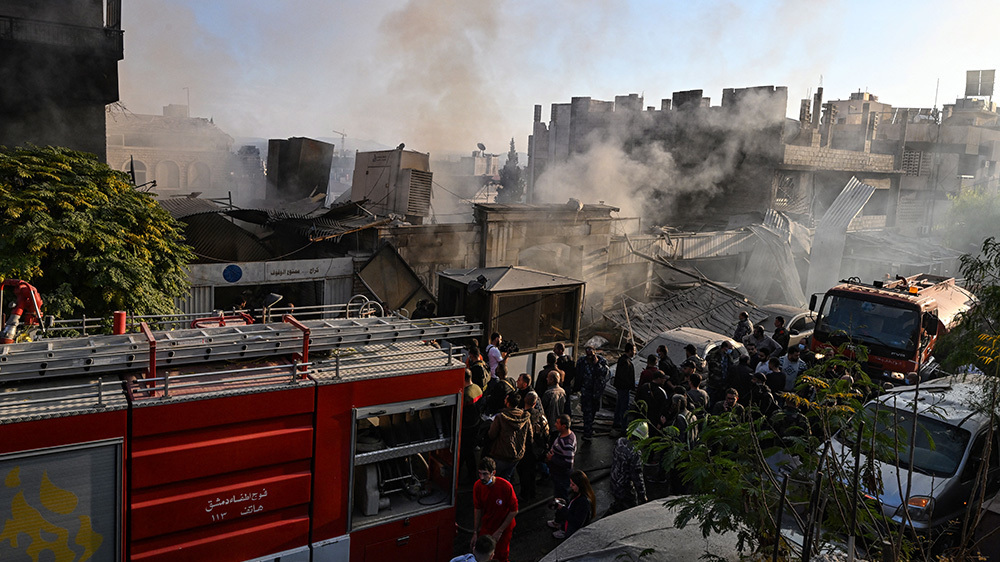Russia says Syria’s Idlib province hotbed for terrorists, warns of inaction consequences
Russia says Syria’s militant-held province of Idlib is a “hotbed of terrorists,” warning that the situation in the Arab country can get more complicated if the problem in the northwestern region is not tackled as growing evidence shows the Idlib-based Takfiris are preparing to stage a false flag chemical weapons attack meant to frame Damascus.
Kremlin spokesman Dmitry Peskov sounded the alarm during a press conference in the capital Moscow on Thursday, saying, “The situation in Syria has significant potential to get more complicated. The situation around Idlib is far from perfect. The terrorists’ hotbed that formed there does not look promising.”
Peskov made the comments in response to a question regarding the planned Russian naval exercises in the Mediterranean Sea, which he said was justifiable due to the status quo of Syria.
Earlier in the week, Russian media reported that Moscow was reinforcing its military presence in the Mediterranean by dispatching a number of warships off the Syrian coast.
Izvestia newspaper reported that Russia currently has at least 10 warships and two submarines in the Syrian waters, adding that this amounted to Moscow’s biggest military presence there since it became involved in anti-terror operations in September 2015 upon a formal request from Syrian President Bashar al-Assad.
It added that Russia was planning to send “several more” warships to the vicinity of the coasts of the Arab country as the Syrian army prepares to launch a full-scale offensive against terrorists in the province.
Russia's Deputy Foreign Minister Sergei Ryabkov has already said the Tahrir al-Sham Takfiri terrorist group “is close to committing a very serious provocation in Idlib using chemical weapons.”
At the weekend, Russia repeatedly warned that Syrian-based terrorists were planning the attack in the militant-held province, which is home to nearly three million people.
The United States has warned it would respond to a chemical weapons attack by Syrian government forces with retaliatory strikes, stressing that the attacks would be stronger than those conducted by American, British and French forces back in April.
On April 14, the US, Britain and France carried out a string of airstrikes against Syria over a suspected chemical weapons attack against the city of Douma, located about 10 kilometers northeast of the capital Damascus. The strike came one week after an alleged gas attack on the city.
Western governments and their allies have never stopped pointing the finger at Damascus whenever an apparent chemical attack takes place.
Damascus on Tuesday provided the United Nations with evidence revealing a plot by Takfiri terrorists to carry out a chemical attack in the country in order to give the US a pretext for an airstrike.
Syria surrendered its stockpile of chemical weapons in 2014 to a joint mission led by the United States and the Organization for the Prohibition of Chemical Weapons (OPCW), which oversaw the destruction of the weaponry. It has also consistently denied using chemical weapons over the course of the foreign-backed militancy, which broke out in the country in 2011.
Meanwhile, UN Special Envoy for Syria Staffan de Mistura has offered to travel to Idlib in a bid to help ensure civilians can leave through a humanitarian corridor as Syrian troops are gearing for an operation to recapture the last major region controlled by Takfiri terrorists.
“I am once again prepared... personally and physically to get involved myself ... to ensure such a temporary corridor would be feasible and guaranteed for the people so that they can then return to their own places once this is over,” he said at a presser in Geneva.
He also called on Russia, Iran and Turkey, as guarantor states for a peace process in Syria, to forestall the Syrian government’s operation in Idlib province.
However, he acknowledged that there was a high concentration of foreign militants in the province, including an estimated 10,000 terrorists.
VIDEO | Press TV's news headlines
VIDEO | US-Israeli genocide: Will Gazans see ceasefire deal achieved?
VIDEO | Grief strikes Parachinar: 44 lives lost in terror attack
VIDEO | Yemen’s armed forces target Israeli airbase amid nationwide pro-Palestinian rallies
Putin vows more test of new hypersonic missile
VIDEO | Jordanians continue rallies to denounce Israeli genocide in Gaza, Lebanon
6 Israeli soldiers commit suicide: Reports
Diplomat discourages recourse to pressure, intimidation, confrontation against Iran














 This makes it easy to access the Press TV website
This makes it easy to access the Press TV website